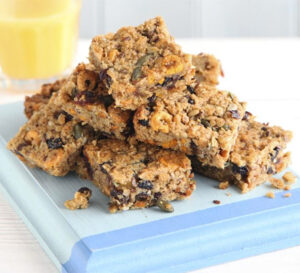Introduction:
Lettuce is a popular leafy vegetable that is commonly found in salads, sandwiches, and wraps. It has a refreshing, crispy texture and a mild, slightly sweet flavor that makes it a popular addition to many dishes. Lettuce is also low in calories and high in nutrients, making it an excellent choice for those who are trying to eat a healthy diet. In this article, we will explore the many benefits of lettuce, including its nutritional value, health benefits, and culinary uses.
Nutritional Value of Lettuce: Lettuce is a low-calorie food that is packed with nutrients. One cup of shredded lettuce contains only about 5 calories, but it also provides a variety of vitamins and minerals. Here are some of the key nutrients found in lettuce:
- Vitamin A: Lettuce is a rich source of vitamin A, which is important for healthy eyesight, skin, and immune system function. One cup of shredded lettuce provides about 147% of the recommended daily intake of vitamin A.
- Vitamin K: Lettuce is also a good source of vitamin K, which is essential for blood clotting and bone health. One cup of shredded lettuce contains about 102% of the recommended daily intake of vitamin K.
- Vitamin C: Lettuce is a good source of vitamin C, which is important for immune system function and collagen synthesis. One cup of shredded lettuce provides about 10% of the recommended daily intake of vitamin C.
- Folate: Lettuce is a good source of folate, which is important for healthy fetal development and may also help prevent certain types of cancer. One cup of shredded lettuce contains about 10% of the recommended daily intake of folate.
- Iron: Lettuce is a good source of iron, which is important for healthy blood cells and energy production. One cup of shredded lettuce contains about 4% of the recommended daily intake of iron.
Health Benefits of Lettuce: In addition to its nutritional value, lettuce also provides a number of health benefits. Here are some of the key health benefits of lettuce:
- Weight Loss: Lettuce is a low-calorie food that can help you feel full without consuming a lot of calories. Eating a salad or adding lettuce to your sandwich or wrap can help you reduce your calorie intake and lose weight.
- Digestive Health: Lettuce is high in fiber, which is important for healthy digestion. Fiber helps to keep the digestive system moving, preventing constipation and promoting regular bowel movements.
- Heart Health: Lettuce contains compounds that may help lower blood pressure and reduce the risk of heart disease. One study found that consuming lettuce regularly was associated with a lower risk of heart disease.
- Cancer Prevention: Lettuce contains compounds that may help prevent certain types of cancer. One study found that consuming lettuce regularly was associated with a lower risk of colorectal cancer.
- Bone Health: Lettuce is a good source of vitamin K, which is important for bone health. Vitamin K helps to regulate calcium absorption and may help prevent osteoporosis.
Culinary Uses of Lettuce: Lettuce is a versatile vegetable that can be used in a variety of dishes. Here are some of the most common culinary uses of lettuce:
- Salads: Lettuce is a popular addition to salads. It can be used as a base for the salad or added as a topping.
- Sandwiches and Wraps: Lettuce is a common ingredient in sandwiches and wraps. It can be used as a filling or added as a topping.
- Soups: Lettuce can be added to soups for a refreshing, light flavor.
Nutritional Facts of lettuce
Lettuce is a leafy green vegetable that is low in calories and high in nutrients. Here are some of the nutritional facts of lettuce:
- Calories: Lettuce is very low in calories. One cup of shredded lettuce contains about 5 calories.
- Fiber: Lettuce is a good source of dietary fiber, which can help keep you feeling full and satisfied. One cup of shredded lettuce contains about 1 gram of fiber.
- Vitamins: Lettuce is rich in vitamins and minerals, including vitamin A, vitamin K, vitamin C, folate, and potassium. One cup of shredded lettuce provides about 25% of your daily recommended intake of vitamin A and 30% of your daily recommended intake of vitamin K.
- Water: Lettuce is high in water content, which can help keep you hydrated. One cup of shredded lettuce contains about 95% water.
- Antioxidants: Lettuce contains antioxidants, which can help protect your cells from damage caused by free radicals.
Overall, lettuce is a nutritious and healthy vegetable that can be incorporated into a balanced diet.
































